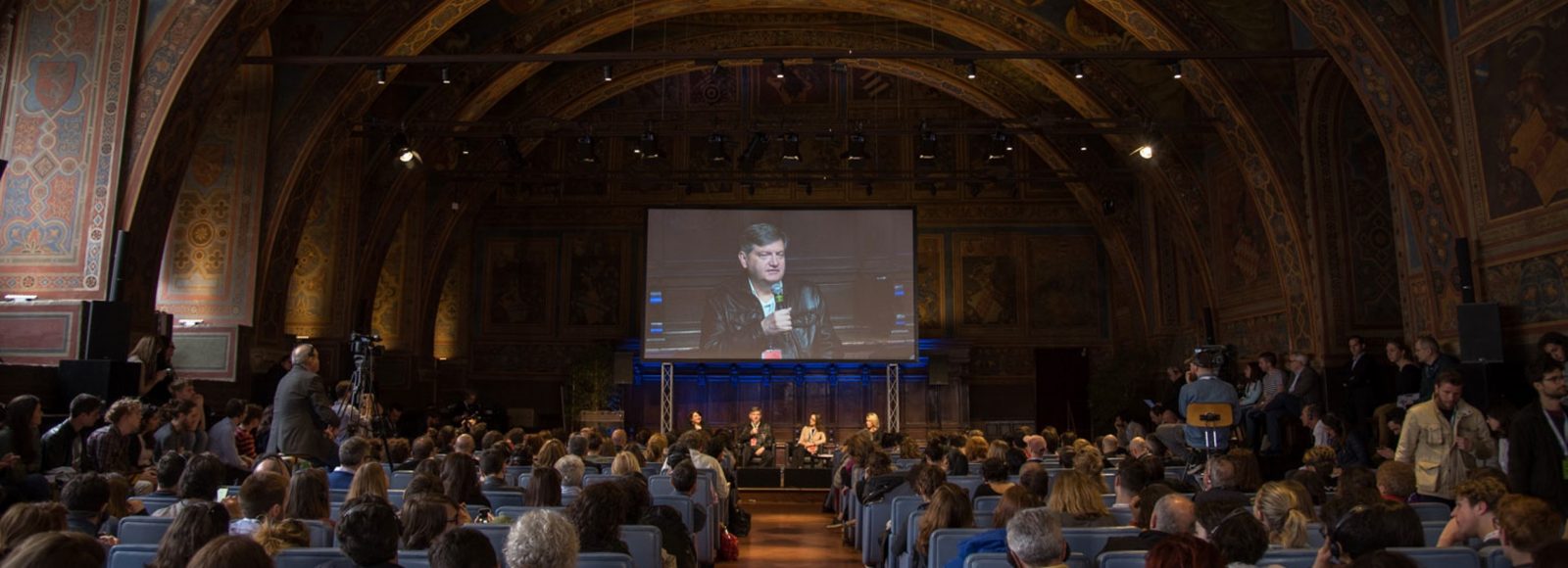We joined the Media Lifeline Ukraine coalition
Since the beginning of the Ukrainian invasion we, at the Prize, have been busy trying to help journalists and independent media outlets in Ukraine. We now joined the coalition Media Lifeline Ukraine, created by Free Press Unlimited, to maximize the impact of our efforts, together with international organizations devoted to the protection of journalists.
During any emergency, but especially in a conflict, reliable and independent coverage of events is crucial to maintain a clear view the issue and form an opinion about it. The buzz of social media and the many actors that try to pollute communication, with fake news, bot armies, and more, can create confusion and literally contribute to shaping the course of the events. A crisis is when journalism shows its muscles and its courage, and its importance becomes evident.
But journalists that operate where the conflict unfolds, in this case in Ukraine, and reporters traveling to where the war is to give us a first-hand account of what happens, face extremely dangerous situations.
What do these journalists need? A simple list
- Funds: Newsrooms and journalists need money to be able to operate.
- Safety equipment: Personal Protection Materials (PPE) such as vests and helmets, PRESS emblems, emergency kits with first aid essentials, water, food, are all crucial.
- Reporting equipment: Equipment such as cameras, power banks, batteries, and laptops can be broken and stolen.
- Digital security: Keeping the digital security of our partners and journalists up to date will ensure their digital protection.
- Tech support: They need to be prepared for internet cuts, or websites hacking.
- Safe spaces inside: Safe shelter within Ukraine for journalists that want to continue reporting from the country is very important. The space will also function as a resource center for journalists in distress with psychological help and financial support for media outlets.
- Support hubs outside: existing media outlets outside Ukraine can provide safe space for coworking, meetings, recording videos and networking for exiled Ukranian, Belarusian and Russian media professionals.
- Psychological support: Journalists in Ukraine are working 24/7 in a conflict situation. It is crucial to provide them with psychological support.
- Linking journalists: Ukrainian journalists and their stories, footage, and photos, have to be connected to European journalists to share their reports and to be paid for that. European journalists associations can support that.
- Relocation: In some cases, temporary relocation of journalists from Ukraine, Belarus and Russia, is needed. The aim of this support is for journalists to continue their work in a safe environment or to give them the necessary time to catch their breath.
Our whole network can help Media Lifeline Ukraine
Situations like the Ukrainian war call for the action of organizations such as Free Press Unlimited, the European Press Prize, The European Journalism Centre, and all the other partners of Media Lifeline Ukraine.
Therefore, we decided to put our knowledge and our contacts at the service of this initiative, which aims at providing journalists with all the help they can be given to keep doing what they are doing at the best of their capabilities.
We consider our network of Laureates, experts, and journalism lovers as part of this project as well. Any help is welcome, be it funding, time, or new contacts to make this initiative grow.
You can visit this link to read more about the initiative, and contact emanuele[at]europeanpressprize.com if you have ideas or contacts you want to share.
The European Press Prize is at the International Journalism Festival
We are delighted to announce we will be attending the International Journalism Festival 2022, hosting a panel on the importance of journalism awards.

Every year, in the Italian city of Perugia, journalists, experts and media lovers come together for the IJF, to talk about journalism and its many challenges and try and understand where the profession is going and how to keep it strong – because there is no healthy democracy without a free press.
We at the European Press Prize are going to attend the Festival, bringing to the table our commitment to celebrate and support journalists all over Europe, and our knowledge of the awards landscape.
How to make awards even more relevant
What is the function of journalism awards? To us, they contribute to raising awareness of the importance of journalism and of the risks that this profession presents.
The latest, important, example of this is the Nobel Peace Prize assigned to Ressa and Muratov for their work in the Philippines and Russia, spreading quality information and countering the actions of their governments.
But can they be more than this? And in what measure can they contribute to making the journalistic profession safer and enhancing the reach of quality journalism?
The discussion panel we will host, is designed to try to answer such questions. With international-level speakers, we will reflect on the role of awards in the journalism landscape. We will talk about their importance, and at the same time try to understand if and where they fall short, to find space for improvement.
The aim is to gather feedback from the attendees, generate ideas, and explain how the European Press Prize works on building a community of journalists that can rely on international awards to do their job better.
The panel will be held in English, and it will be recorded, so we will be able to share it with you as soon as it will be available.
Click here to read more about the IJF.

